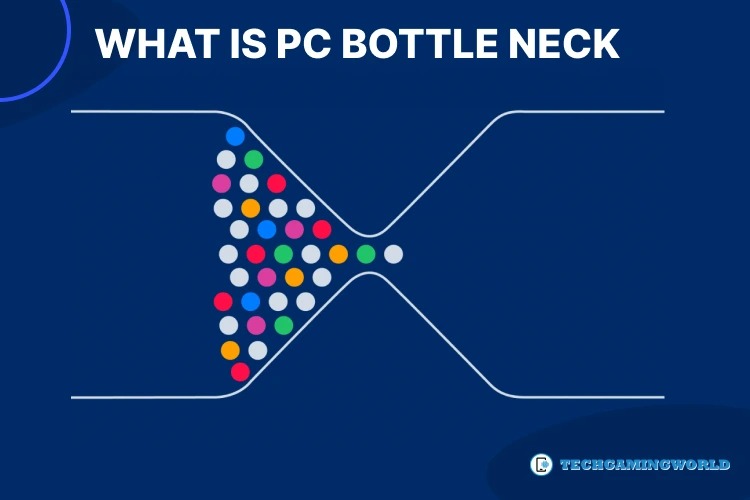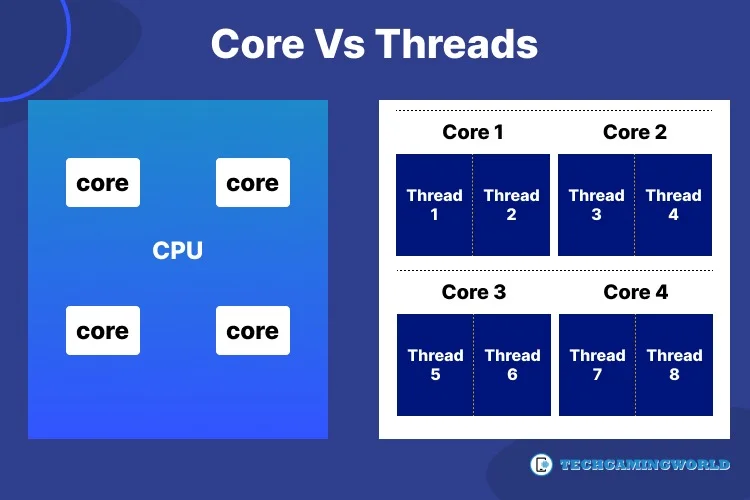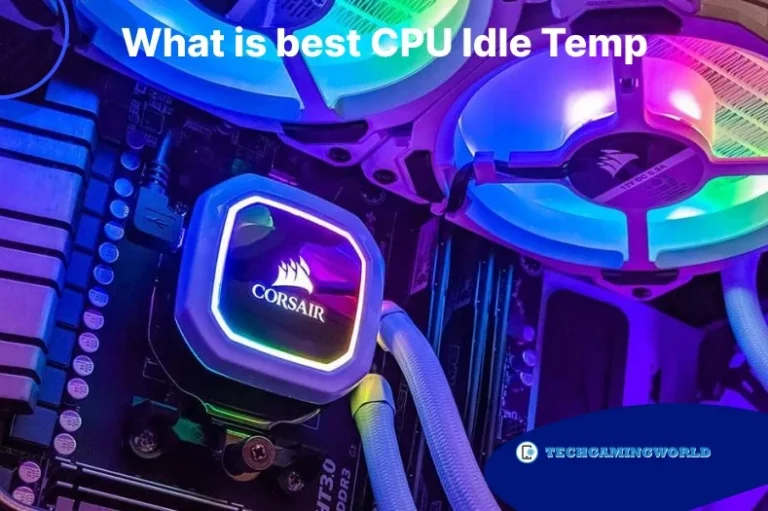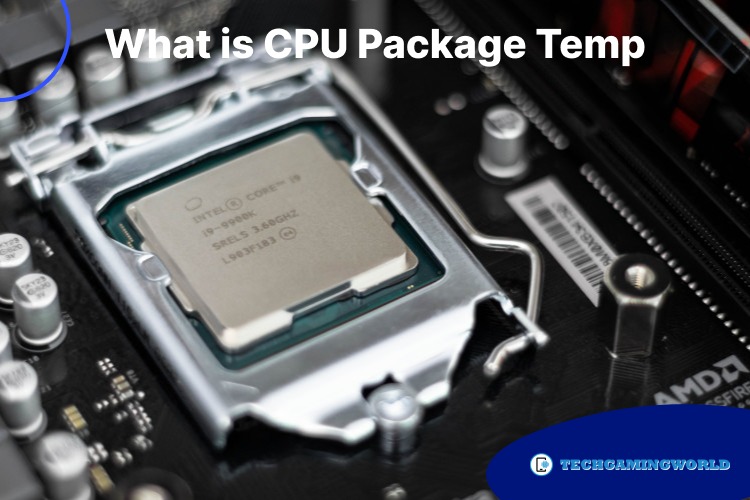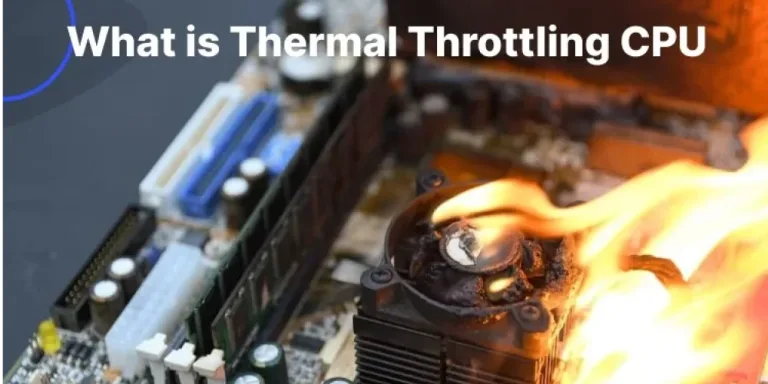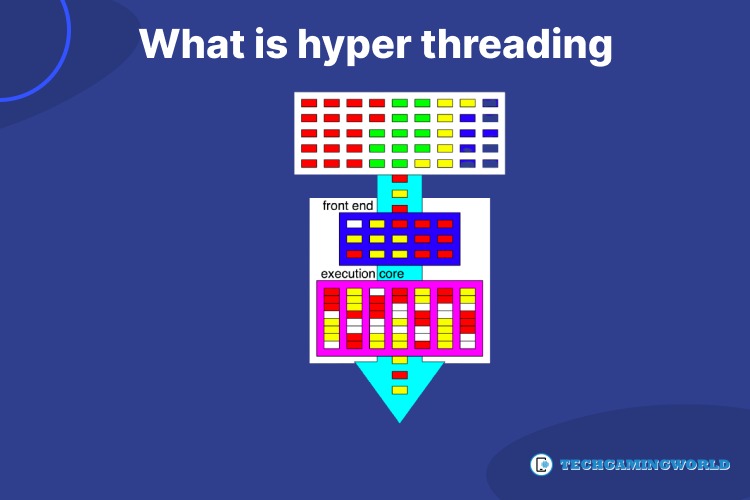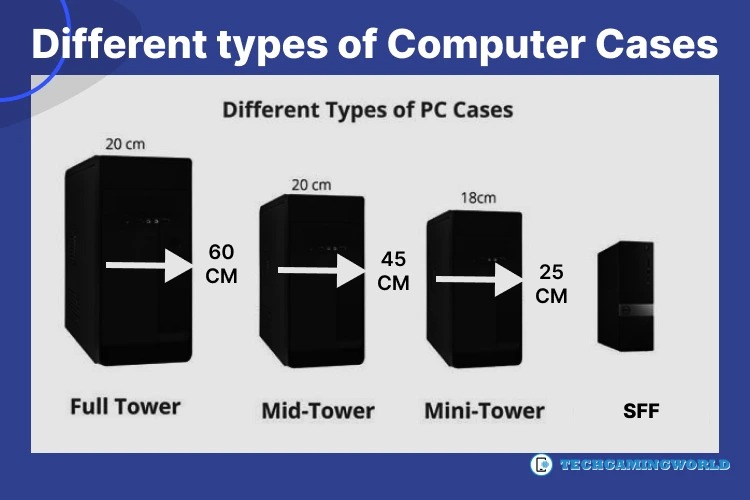What Is PC Bottleneck How To Fix It Complete Guide 2024?
Do you want to know What is PC bottleneck? In the world of computers and gaming, the term “bottleneck” refers to a situation where one component of a system significantly limits or hinders the performance of the entire system. A bottleneck can occur when there is a significant performance disparity between different components, leading to inefficient utilization of resources and a decrease in overall performance. In this article, we will explore the concept of Cpu bottleneck, understand their causes and impacts, and discuss possible solutions to mitigate their effects.
What is PC Bottleneck?
A PC bottleneck occurs when one or more components in a computer system limit the performance potential of other components. It is akin to a traffic bottleneck, where a narrow section of the road slows down the overall flow of traffic. In a computer system, the component that is operating at its maximum capacity becomes the bottleneck, restricting the performance of other components.fgpu

Causes of PC Bottlenecks
PC bottlenecks can stem from various factors. One common cause is a mismatch between the processing power of the CPU and the graphics rendering capabilities of the GPU. If the GPU is significantly more powerful than the CPU, the CPU may struggle to keep up with the GPU’s demands, resulting in a bottleneck.
Therefore, GPU’s memory graphics performance is crucial for running such demanding applications on a computer.
Insufficient memory (RAM) can also cause a bottleneck. When a system runs out of available memory, it relies on slower storage devices such as hard drives or solid-state drives (SSDs) to compensate, which can significantly slow down overall performance. check Types of Solid State Drives.
Storage devices themselves can also become bottlenecks if they are not able to transfer data quickly enough. For example, using an outdated hard drive instead of a faster SSD can limit the data transfer rate and negatively impact the system’s performance.
Impacts of PC Bottlenecks
The impacts of PC bottlenecks can manifest in various ways. One noticeable effect is a decrease in overall system performance. Tasks that require the bottlenecked component to operate at its maximum capacity will be significantly slower than expected.
In gaming, bottlenecks can lead to reduced frame rates, choppy gameplay, and longer loading times. The game’s graphics and physics calculations may be hindered if the CPU or GPU is unable to keep up, resulting in a less immersive and enjoyable gaming experience.
Related: What Is CPU Package Temp.
Bottlenecks can also affect productivity tasks such as video editing, rendering, or data analysis. These tasks heavily rely on the processing power of the CPU, and if it becomes the bottleneck, the time required to complete these tasks will increase.
Solutions to PC Bottlenecks
Addressing PC bottlenecks requires identifying the component or components causing the bottleneck and implementing appropriate solutions. Here are some potential remedies:
Related: An Absolute Guide Small Form Factor PC Case Build, Pros & Cons 2023
Upgrading Components:
Identifying the bottlenecked component and upgrading it to a more powerful one can alleviate the bottleneck. For example, upgrading to a faster CPU, adding more RAM, or replacing a slower hard drive with a faster SSD can improve overall system performance. Read 10 Effective Ways How to Optimize SSD for Enhanced Performance.
Balancing System Components:
Ensuring a balanced system is crucial to avoid bottlenecks. This means selecting components that complement each other in terms of performance. For gaming, pairing a powerful GPU with a CPU of similar capabilities can help prevent bottlenecks.
Overclocking:
Overclocking involves increasing the clock speed of the bottlenecked component to squeeze out extra performance. However, this should be done cautiously, as it can increase heat generation and potentially reduce component lifespan if not properly managed. Just make positive it is like minded with your motherboard’s socket kind earlier than making the change.
Related: What is best CPU idle temp?
Optimizing Software and Settings:
Adjusting software settings and optimizing power management options can help mitigate bottlenecks. For example, adjusting graphics settings in games or closing unnecessary background applications can free up system resources and improve performance.
Related: Best Guide Different types of Computer Cases 2023.
What is GPU bottleneck
A GPU bottleneck occurs when the performance of a computer system is limited by the processing capabilities of the graphics processing unit (GPU) rather than other components like the CPU, memory, or storage. In other words, the GPU becomes the limiting factor in terms of processing power, causing it to struggle to keep up with the demands of the system
A GPU bottleneck typically arises in situations where the GPU is not powerful enough to handle the workload it’s being given. For example, in a gaming scenario, if the GPU is outdated or low-end compared to the CPU, it may struggle to render complex graphics or handle high frame rates, leading to a bottleneck. As a result, the overall performance of the system suffers, and you may experience lower frame rates, stuttering, or graphical glitches.
Conclusion
PC bottlenecks can significantly impact system performance and hinder the overall user experience, particularly in gaming and resource-intensive tasks. Understanding the causes and effects of bottlenecks is crucial for identifying and implementing appropriate solutions. Keeping an eye on system performance and regularly assessing the balance between components will help users maintain optimal performance and avoid potential bottlenecks in the future. So we hope you have deeply known What is PC bottleneck? But if you want further information contact us via our comment section
FAQs Of What is PC bottleneck

About Author
I am EDIE MILES, the founder of TechGamingWorld, a blog. in which is an online gaming community dedicated to providing the latest news and reviews about the world of online games, including PC and console games. Read More

